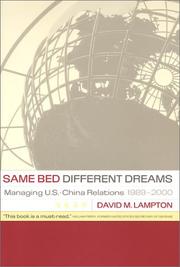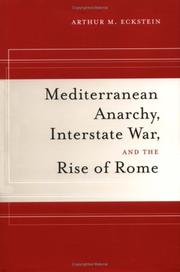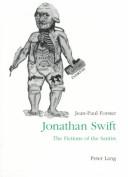| Listing 1 - 10 of 26 | << page >> |
Sort by
|
Book
ISBN: 9780521899406 9780511844898 9780521728201 9780511677755 0511677758 0511844891 9780511682230 0511682239 0521899400 0521728207 1107212421 0511850050 1282653121 9786612653124 0511684215 0511679009 0511680252 9781107212428 9780511850059 9781282653122 6612653124 9780511684210 9780511679001 9780511680250 Year: 2010 Publisher: Cambridge : Cambridge University Press,
Abstract | Keywords | Export | Availability | Bookmark
 Loading...
Loading...Choose an application
- Reference Manager
- EndNote
- RefWorks (Direct export to RefWorks)
Ferns are an integral part of the world's flora, appreciated for their beauty as ornamentals, problematic as invaders and endangered by human interference. They often dominate forest understories but also colonize open areas, invade waterways and survive in nutrient-poor wastelands and eroded pastures. Presented here is the first comprehensive summary of fern ecology, with worldwide examples from Siberia to the islands of Hawaii. Topics include a brief history of the ecological study of ferns, a global survey of fern biogeography, fern population dynamics, the role of ferns in ecosystem nutrient cycles, their adaptations to xeric environments and future directions in fern ecology. Fully illustrated concepts and processes provide a framework for future research and utilization of ferns for graduate students and professionals in ecology, conservation and land management.
PTE Pteridophyta --- Pteridophyta --- ecology --- biogeography --- population dynamics --- ecosystems --- adaptative strategies --- nature conservation --- CITES --- Ferns --- Fern allies --- Pteridophytes --- Vascular cryptogams --- Archegoniatae --- Cryptogams --- Fern --- Filicineae --- Filicophyta --- Filicopsida --- Polypodiophyta --- Pterophyta --- Ecology.

ISBN: 0813585724 058523003X 9780585230030 0813518172 9780813585727 Year: 1992 Publisher: New Brunswick, NJ : Rutgers University Press,
Abstract | Keywords | Export | Availability | Bookmark
 Loading...
Loading...Choose an application
- Reference Manager
- EndNote
- RefWorks (Direct export to RefWorks)
Ferns --- Pteridophyta --- Fungi & Algae --- Botany --- Earth & Environmental Sciences --- Fern --- Filicineae --- Filicophyta --- Filicopsida --- Polypodiophyta --- Pterophyta --- Fern allies --- Pteridophytes --- Vascular cryptogams --- Archegoniatae --- Cryptogams --- Identification. --- Pictorial works. --- Identification --- Pictorial works
Book
ISBN: 1771993022 Year: 2021 Publisher: Edmonton, Alberta : AU Press,
Abstract | Keywords | Export | Availability | Bookmark
 Loading...
Loading...Choose an application
- Reference Manager
- EndNote
- RefWorks (Direct export to RefWorks)
Millions of people are displaced each year by war, persecution, and famine and the global refugee population continues to grow. Canada has often been regarded as a benevolent country, welcoming refugees from around the globe. However, refugees have encountered varying kinds of reception in Canada. Finding Refuge in Canada: Narratives of Dislocation is a collection of personal narratives about the refugee experience in Canada. It includes critical perspectives from authors from diverse backgrounds, including refugees, advocates, front-line workers, private sponsors, and civil servants. The narratives collected here confront dominant public discourse about refugee identities and histories and provide deep insight into the social, political, and cultural challenges and opportunities that refugees experience in Canada. Contributors consider Canada’s response to various groups of refugees and how Canadian perspectives on war, conflict, and peace are constructed through the refugee support experience. These individual stories humanize the global refugee crisis and challenge readers to reflect on the transformative potential of more equitable policies and processes. Contributions by Howard Adelman, Irene Boisier Policzer, Shelley Campagnola, Matida Daffeh, Eusebio Garcia, Julia Holland, Bill Janzen, Katharine Lake Berz, Michael Molloy, Adam Policzer, Pablo Policzer, Victor Porter, Boban Stojanović, Cyrus Sundar Singh, and Flora Terah.
Refugees --- BIPOC stories. --- allyship. --- asylum seeker. --- asylum. --- autobiography. --- detention center. --- emergency aid. --- family history. --- first generation. --- human rights watch. --- human rights. --- identity. --- memoir. --- migrant crisis. --- migrant. --- migration. --- overcrowding. --- red cross. --- refugee camp. --- rescue. --- white allies. --- witness.
Book
ISBN: 022655175X Year: 2018 Publisher: Chicago : University of Chicago Press,
Abstract | Keywords | Export | Availability | Bookmark
 Loading...
Loading...Choose an application
- Reference Manager
- EndNote
- RefWorks (Direct export to RefWorks)
In 1864, amid headline-grabbing heresy trials, members of the British Association for the Advancement of Science were asked to sign a declaration affirming that science and scripture were in agreement. Many criticized the new test of orthodoxy; nine decided that collaborative action was required. The X Club tells their story. These six ambitious professionals and three wealthy amateurs-J. D. Hooker, T. H. Huxley, John Tyndall, John Lubbock, William Spottiswoode, Edward Frankland, George Busk, T. A. Hirst, and Herbert Spencer-wanted to guide the development of science and public opinion on issues where science impinged on daily life, religious belief, and politics. They formed a private dining club, which they named the X Club, to discuss and further their plans. As Ruth Barton shows, they had a clear objective: they wanted to promote "scientific habits of mind," which they sought to do through lectures, journalism, and science education. They devoted enormous effort to the expansion of science education, with real, but mixed, success. For twenty years, the X Club was the most powerful network in Victorian science-the men succeeded each other in the presidency of the Royal Society for a dozen years. Barton's group biography traces the roots of their success and the lasting effects of their championing of science against those who attempted to limit or control it, along the way shedding light on the social organization of science, the interactions of science and the state, and the places of science and scientific men in elite culture in the Victorian era.
Science clubs --- Science --- History --- X Club (London, England) --- London (England) --- Intellectual life --- cultural authority. --- dignity and independence of science. --- group biography. --- heroic histories. --- importance of allies. --- infrastructure for scientific research. --- naturalism. --- professionalizers of science. --- secular culture and society.

ISBN: 0520928970 1597348856 9780520928978 0585389950 9780585389950 0520234626 9780520234628 9781597348850 Year: 2001 Publisher: Berkeley, CA : University of California Press,
Abstract | Keywords | Export | Availability | Bookmark
 Loading...
Loading...Choose an application
- Reference Manager
- EndNote
- RefWorks (Direct export to RefWorks)
The title of this unique insider's look at a crucial decade of Sino-American interchange derives from a Chinese expression that describes a relationship of two people whose lives are intimately intertwined but who do not fundamentally communicate with each other. David M. Lampton, former president of the National Committee on U.S.-China Relations, demonstrates that while the United States and China have enormous interests at stake in their bilateral relationship, neither has been particularly deft in dealing with the other. His fascinating account shows how the processes of globalization, along with the development of international regimes and multilateral organizations, have brought America and China increasingly close in the global bed. At the same time, their respective national institutions, interests, popular perceptions, and the very characters of their two peoples, assure that the nations continue to have substantially different dreams. Lampton explores the reasons why the Sino-American relationship is so difficult for both nations to manage and suggests ways it can be more effectively conducted in the future. His unique experience in China-nearly thirty years as a scholar, as the head of a policy-oriented exchange organization, and as director of Washington think-tank research programs-enabled him to spend extended periods with Chinese leaders and see them as they encountered America, as well as to observe U.S. leaders as they tried to come to grips with Chinese circumstances. Among many other key events, Lampton witnessed firsthand the aftermath of Tiananmen Square, successive congressional battles over most-favored-nation tariff treatment, the end of the Bush era and the rocky beginning of the Clinton administration, the death of Deng Xiaoping and Jiang Zemin's transition to power, the reversion of Hong Kong to Chinese sovereignty, and the Asian financial crisis that unfolded from mid-1997 to the end of the decade. Lampton's careful documentary research is supplemented by interviews and accounts of his personal interaction throughout the period with leaders and key players in Washington, Beijing, Taipei, and Hong Kong. The book thus represents a singular combination of historical research, policy analysis, and personal observation, and offers guidance for those in both America and China who must shape this critical relationship in the twenty-first century.
HISTORY / Asia / General. --- United States --- China --- Foreign relations --- 21st century. --- academic. --- allies. --- bush era. --- china. --- chinese ancestry. --- chinese culture. --- clinton administration. --- global. --- globalization. --- government. --- historical research. --- history buff. --- international relations. --- policy analysis. --- political. --- politics. --- relationship. --- scholarly. --- sino american. --- tariff. --- tiananmen square. --- trade agreement. --- united states. --- world history.
Book
ISBN: 1978807104 9781978807105 9781978805002 1978805004 1978805012 9781978805019 1978805020 9781978805026 Year: 2020 Publisher: New Brunswick : Rutgers University Press,
Abstract | Keywords | Export | Availability | Bookmark
 Loading...
Loading...Choose an application
- Reference Manager
- EndNote
- RefWorks (Direct export to RefWorks)
This book explores Mississippi Christians’ beliefs about homosexuality and gay and lesbian civil rights and whether having a gay or lesbian friend or family member influences those beliefs. Beliefs about homosexuality and gay and lesbian rights vary widely based on religious affiliation. Despite having gay or lesbian friends or family members, evangelical Protestants believe homosexuality is sinful and oppose gay and lesbian rights. Mainline Protestants are largely supportive of gay and lesbian rights and become more supportive after getting to know gay and lesbian people. Catholics describe a greater degree of uncertainty and a conditional acceptance of gay and lesbian rights; clear differences between conservative and liberal Catholics are evident. Overall, conservative Christians, both evangelical Protestants and conservative Catholics, hold a religious identity that overshadows their relationships with gay and lesbian friends or family. Conservative religion acts as a deterrent to the positive benefits of relationships with gay and lesbian people.
Sexual rights. --- Homosexuality --- Sex --- Sex (Theology) --- Sexual freedom --- Human rights --- Religious aspects --- Christianity. --- Law and legislation --- Christianity, Sexuality, Gay, Lesbian, LGBT, civil rights, LGBT rights, Mississippi, United States, homosexuality, religion, evangelical Protestants, mainline Protestants, Catholicism, conservative Catholics, liberal Catholics, Protestantism, conservative Christians, religious identity, religious beliefs, LGBT allies.
Book
ISBN: 0520969197 9780520969193 0520969197 9780520296886 0520296885 9780520296893 0520296893 Year: 2017 Publisher: Oakland, California : University of California Press,
Abstract | Keywords | Export | Availability | Bookmark
 Loading...
Loading...Choose an application
- Reference Manager
- EndNote
- RefWorks (Direct export to RefWorks)
For over a century and in scores of countries, patriarchal presumptions and practices have been challenged by women and their male allies. "Sexual harassment" has entered common parlance; police departments are equipped with rape kits; more than half of the national legislators in Bolivia and Rwanda are women; and a woman candidate won the plurality of the popular votes in the 2016 United States presidential election. But have we really reached equality and overthrown a patriarchal point of view? The Big Push exposes how patriarchal ideas and relationships continue to be modernized to this day. Through contemporary cases and reports, renowned political scientist Cynthia Enloe exposes the workings of everyday patriarchy-in how Syrian women civil society activists have been excluded from international peace negotiations; how sexual harassment became institutionally accepted within major news organizations; or in how the UN Secretary General's post has remained a masculine domain. Enloe then lays out strategies and skills for challenging patriarchal attitudes and operations. Encouraging self-reflection, she guides us in the discomforting curiosity of reviewing our own personal complicity in sustaining patriarchy in order to withdraw our own support for it. Timely and globally conscious, The Big Push is a call for feminist self-reflection and strategic action with a belief that exposure complements resistance.
Patriarchy. --- Sex role. --- Feminism --- Patriarchy --- Sexual harassment. --- Women --- Social conditions. --- History. --- Economic conditions. --- Social aspects --- gender womens studies. --- lesbian rights. --- lgbt rights. --- male allies. --- patriarchal society. --- patriarchy. --- presidential election. --- rape kits. --- secretary general of the un. --- self reflection. --- sexual harassment. --- womens rights advocate. --- womens rights.
Book
ISBN: 0520970640 9780520970649 9780520298583 Year: 2019 Publisher: Berkeley, CA : University of California Press,
Abstract | Keywords | Export | Availability | Bookmark
 Loading...
Loading...Choose an application
- Reference Manager
- EndNote
- RefWorks (Direct export to RefWorks)
Dreamers and Schemers chronicles how Los Angeles's pursuit and staging of the 1932 Olympic Games during the depths of the Great Depression helped fuel the city's transformation from a seedy frontier village to a world-famous metropolis. Leading that pursuit was the "Prince of Realtors," William May (Billy) Garland, a prominent figure in early Los Angeles. In important respects, the story of Billy Garland is the story of Los Angeles. After arriving in Southern California in 1890, he and his allies drove much of the city's historic expansion in the first two decades of the twentieth century. Then, from 1920 to 1932, he directed the city's bid for the 1932 Olympic Games. Garland's quest to host the Olympics provides an unusually revealing window onto a particular time, place, and way of life. Reconstructing the narrative from Garland's visionary notion to its consequential aftermath, Barry Siegel shows how one man's grit and imagination made California history.
Olympic host city selection --- Hosting of sporting events --- Garland, William May, --- Olympic Games --- 1890. --- 1920 to 1932. --- 1932 olympics. --- 1932. --- allies. --- billy garland. --- california history. --- california. --- consequential aftermath. --- great depression. --- grit. --- historic expansion. --- los angeles. --- olympic games. --- olympics. --- prince of realtors. --- seedy frontier village. --- southern california. --- transformation. --- united states. --- visionary notion. --- william may garland. --- world famous metropolis.

ISBN: 9780520246188 0520246187 0520259920 0520932307 128235888X 1433701359 9786612358883 9781282358881 9780520932302 9781433701351 Year: 2007 Volume: 48 Publisher: Berkeley, CA : University of California Press,
Abstract | Keywords | Export | Availability | Bookmark
 Loading...
Loading...Choose an application
- Reference Manager
- EndNote
- RefWorks (Direct export to RefWorks)
This ground-breaking study is the first to employ modern international relations theory to place Roman militarism and expansion of power within the broader Mediterranean context of interstate anarchy. Arthur M. Eckstein challenges claims that Rome was an exceptionally warlike and aggressive state-not merely in modern but in ancient terms-by arguing that intense militarism and aggressiveness were common among all Mediterranean polities from ca 750 B.C. onwards. In his wide-ranging and masterful narrative, Eckstein explains that international politics in the ancient Mediterranean world was, in political science terms, a multipolar anarchy: international law was minimal, and states struggled desperately for power and survival by means of warfare. Eventually, one state, the Republic of Rome, managed to create predominance and a sort of peace. Rome was certainly a militarized and aggressive state, but it was successful not because it was exceptional in its ruthlessness, Eckstein convincingly argues; rather, it was successful because of its exceptional ability to manage a large network of foreign allies, and to assimilate numerous foreigners within the polity itself. This book shows how these characteristics, in turn, gave Rome incomparably large resources for the grim struggle of states fostered by the Mediterranean anarchy-and hence they were key to Rome's unprecedented success.
Rome - Foreign relations - 510-30 B.C. --- Rome - History - Republic, 510-30 B.C. --- Anarchism --- International relations --- War --- Armed conflict (War) --- Conflict, Armed (War) --- Fighting --- Hostilities --- Wars --- Military art and science --- Peace --- Coexistence --- Foreign affairs --- Foreign policy --- Foreign relations --- Global governance --- Interdependence of nations --- International affairs --- Peaceful coexistence --- World order --- National security --- Sovereignty --- World politics --- Anarchism and anarchists --- Anarchy --- Government, Resistance to --- Libertarianism --- Nihilism --- Socialism --- Rome --- History --- Anarchism. --- War. --- International relations. --- Anarchisme --- Guerre --- Relations internationales --- Histoire --- Relations extérieures --- allies. --- anarchy. --- ancient rome. --- ancient world. --- classical greece. --- classical world. --- foreign allies. --- hellenistic. --- international law. --- international politics. --- international relations. --- international. --- interstate. --- justice. --- law. --- legal issues. --- mediterranean. --- militarism. --- modern world. --- political science. --- politics. --- power struggles. --- realist. --- roman generals. --- roman history. --- violence. --- wartime.

ISBN: 1283641828 1282320106 9786612320101 1134771797 0203196953 3906757811 0415139082 0415568862 9781134771790 9780203196953 9780415139083 9781134771745 9781134771783 9780415568869 1134771789 Year: 1970 Publisher: London : Routledge & K. Paul,
Abstract | Keywords | Export | Availability | Bookmark
 Loading...
Loading...Choose an application
- Reference Manager
- EndNote
- RefWorks (Direct export to RefWorks)
The Critical Heritage gathers together a large body of critical sources on major figures in literature. Each volume presents contemporary responses to a writer's work, enabling student and researcher to read the material themselves.
English literature. --- Swift, Jonathan, --- Criticism and interpretation. --- Swift, Jonathan --- di Marco, Corolini --- Swift, Dean --- Gulliver, Lemuel --- British literature --- Inklings (Group of writers) --- Nonsense Club (Group of writers) --- Order of the Fancy (Group of writers) --- Svift, Dzhonatan, --- Du Baudrier, --- Wagstaff, Simon, --- Fribble, Timothy, --- Baudrier, --- Drapier, M. B., --- Swift, J. --- Author of The conduct of the allies, --- Conduct of the allies, Author of the, --- Philomath, T. N., --- T. N., --- N., T., --- TN, --- Swift, --- Hope, Thomas, --- A. B., --- B., A., --- Author of The short view of the state of Ireland, --- Short view of the state of Ireland, Author of the, --- Author of Gulliver's travels, --- Gulliver's travels, Author of, --- S --- -t, --- D--n S --- -t --- Sṿifṭ, Yonatan, --- Misosarum, Gregory, --- Ssu-wei-fo-tʻe, Kʻuang-sheng, --- Fizle, Obadiah, --- Soyipht, Tzonathan, --- Soyipht, Iōnathan, --- Swift, Jonatán, --- Свифт, Джонатан, --- סבפט, יונתן, --- סוויפט, יאנאטהאן, --- סויפט, יונתן, --- סװיפט, יאנאטהאן, --- סװיפט, י., --- Bickerstaff, Isaac, --- Sviphṭa, Jonāthana, --- M., Stephen, --- Author of A tale of a tub,
| Listing 1 - 10 of 26 | << page >> |
Sort by
|

 Search
Search Feedback
Feedback About UniCat
About UniCat  Help
Help News
News